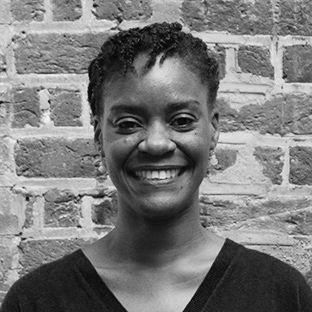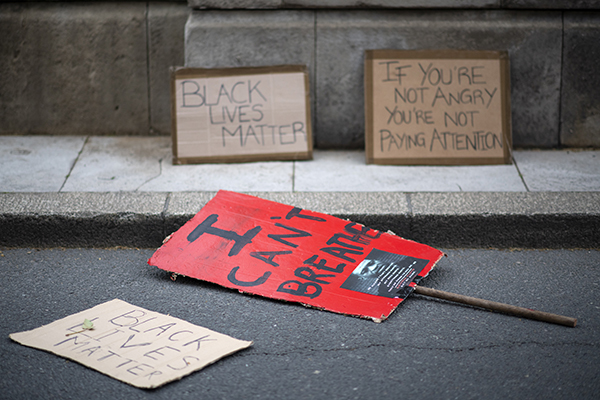Over the last two years, the unimaginable has occurred and to me it feels in some ways like a crazy rerun of history. Asylum seekers crushed onto boats fleeing persecution and war. Is this the aftermath of World War II or the boat launchings in Indochina during the late 70’s?
It is in fact the multiplier effect of civil war in Syria and the security situation in Libya festering into a colossal failure of the international community to protect the dignity of those fleeing conflict and violence. The images of refugees have now become ubiquitous and the global population fatigued.
Against this backdrop, the international community will meet on 5th February at the Syrian Donors Conference in London to discuss the humanitarian needs of those affected by the conflict, particularly the funding gap to support humanitarian efforts. It is my hope that not only the financing gap is met so that the provision of care and services to the most vulnerable is delivered, but the conference participants pay special attention to the needs of women fleeing the conflict.
Of the 4.5 million registered Syrian refugees located in Iraq, Jordan, Lebanon, Egypt and Turkey, approximately 50% of the refugee population is female.
Most notably, 25% of the female Syrian refugees are aged 17 years and under.
For the Syrian Donors Conference, the participants (UK, Kuwait, Germany, Norway and the United Nations) will seek to address the shortfall in funding, and identify long term solutions for the needs of the refugee population in order to avoid a protracted refugee status. The outlook is unfortunately grim. According to the UK Government, current funding to the 2015 UN appeals has not even reached last year’s level – US$3.3 billion against an appeal of $8.4 billion.
In my opinion, it is imperative that the participants examine the issues through a gender lens remaining mindful that females are particularly vulnerable to sexual and gender based violence in times of war and conflict. This is not exclusive to females as males are also victimised as well. Protection risks in their country of origin are high as rape and other forms of sexual violence are used as weapons of war. Sadly the global community has the experience of past and current conflicts to know that this is true and the Syrian War is no exception.
Protection risks along migration routes to host countries (e.g. Turkey, Jordan or even Europe) for women is nothing short of treacherous. They are vulnerable to extortion, exploitation, rape, human trafficking and physical assault. Some may be subjected to the abuses of smuggler groups, forced labour and detention. However, upon reaching safety, many female asylum seekers and migrants typically do not disclose their trauma because of fear of rejection or alienation amongst their community. This underscores the importance of providing mental health care facilities and services as well as personnel trained in gender based sexual violence in refugee reception and processing centers.
Unfortunately, the unprecedented influx of migrants and asylum seekers in 2015 and the lack of a coordinated approach, host governments and humanitarian actors are overwhelmed and frantically dealing with new arrivals. The provision of basic services and processing of asylum seekers are of the utmost importance to humanitarian actors on the ground – sexual and gender based violence is not deemed a priority.
My appeal to donors participating in the London Conference is that they think of the following when considering financial support to refugees and their host countries.
In terms of humanitarian aid, donors should ensure the provision of:
- Services and facilities which are sex segregated in order to guarantee the security of both male and female refugees, especially children.
- Basic medical care which includes access to reproductive health care, mental health care and psycho-social care in order to effectively engage with victims of gender and sexual based violence and trauma. Access to this care must be non - discriminatory in nature.
- Family reunification services provided by humanitarian actors and typically coordinated by the International Red Cross and Red Societies are of paramount importance. This is critical for unaccompanied minors, pregnant women and single women who fled their home country alone.
The international community must begin to shift from provision of emergency humanitarian care and towards building resilience and empowerment to the refugee population. By employing programming geared towards the involvement of refugees particularly women, acting as agents of change, will enable successful integration and reduce tensions when living alongside populations in host countries such as Turkey or Jordan.
Donors must demand that support programmes for refugees and asylum seekers incorporate working with local womens’ organisations. Using local civil society in host countries will promote gender equality and women’s empowerment but it will be framed within the local context which will be appropriate. Further to this, local organisations uniquely provide support services such as legal services, peer counselling and language training that are considered valuable to refugee populations.
Finally, donor nations must exercise their “good offices” within their sphere of influence in order to push for long-term policy solutions by persuading other governments to act in the interest of vulnerable persons - particularly female asylum seekers both within the country of origin, transit countries and in host territories.
Governments must ensure displaced persons and asylum seekers are able to seek humanitarian protection that is both safe and legal. This serves not only in their national interests, but it is their moral and legal obligation to humanitarian principles and the preservation of human life and dignity.
Related articles
-
The broader purpose of the environmental movement
Hila Chenzbraun Philipa Duthie
How can environmental movements tackle the climate crisis and social and racial injustice?
-
Seven structural pathways for racial equity: a dispatch from the RSA US
Alexa Clay
Alexa Clay who leads the RSA US, puts a spotlight on some long-term structural pathways to overcoming police brutality and supporting social and economic justice in America.
-
Amnesty International Children’s Human Rights Network and Whitley Bay Film Festival join forces
Jessica McMorrow
Amnesty International Children’s Human Rights Network and Whitley Bay Film Festival are teaming up to celebrate the 30th anniversary of the UN Convention on the Rights of the Child and the campaign for the UK to sign up to Optional Protocol 3 of the Convention.




Be the first to write a comment
Comments
Please login to post a comment or reply
Don't have an account? Click here to register.